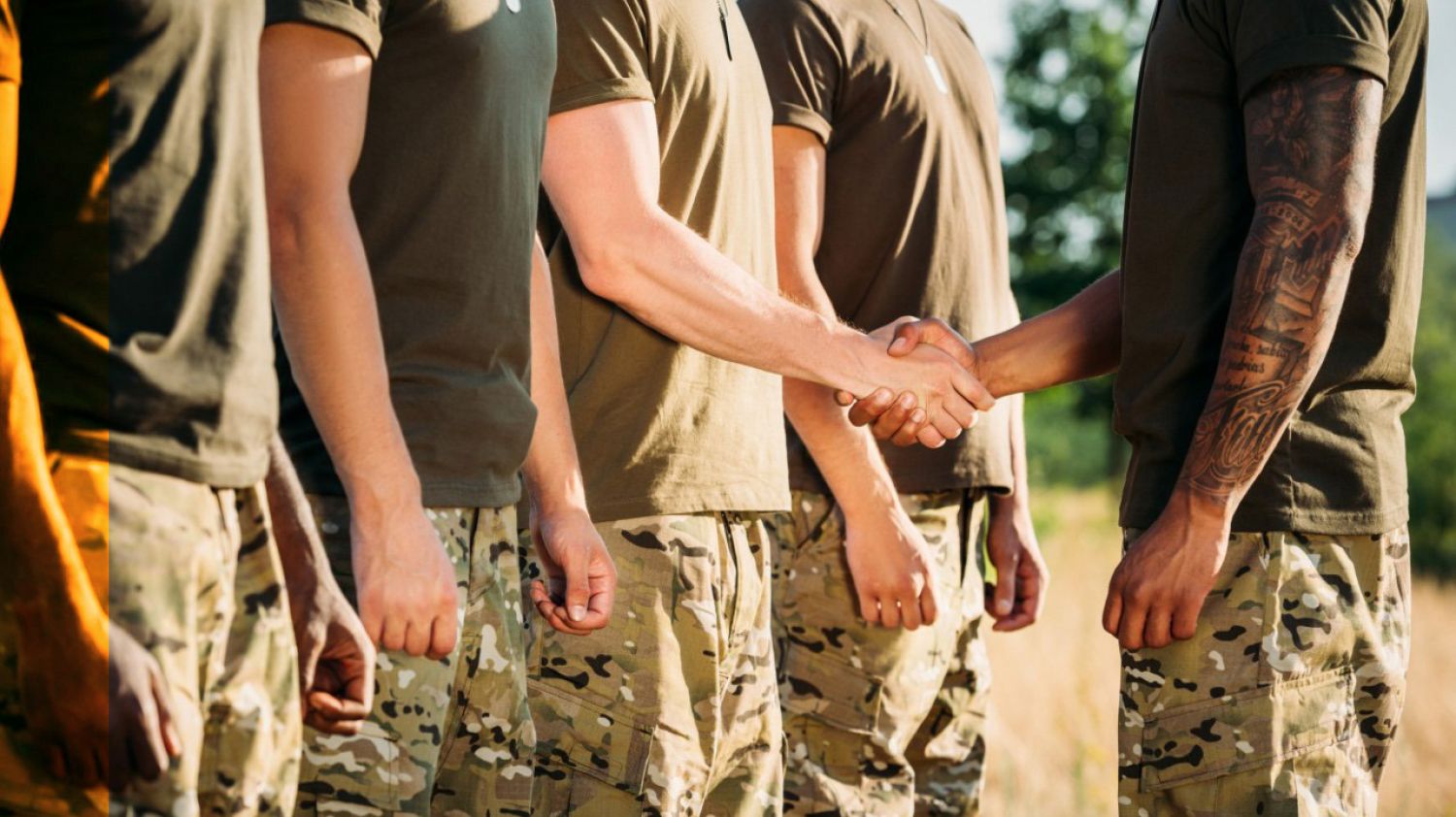- http://www.biography.com/people/groups/air-force
- https://en.wikipedia.org/wiki/List_of_United_States_Navy_people (*for a more complete list)
- https://en.wikipedia.org/wiki/List_of_sailors (*for a more complete list)
- http://blog.customink.com/2013/06/us-navy-slogans-and-sayings/
- http://www.johncoltrane.com/biography.html
- http://www.biography.com/people/john-coltrane-9254106#early-music-career
- https://www.nwhm.org/education-resources/biography/biographies/grace-murray-hopper/
- http://sports.jrank.org/pages/4577/Staubach-Roger-Begins-Service-in-Navy.html
Written by Jenifer Chrisman on July 11, 2016.
From authors to diplomats, astronauts to actors, scientists to politicians, they all had one thing in common…at one point or another in their lives they were United States Sailors. Some were famous before they joined. Some began to distinguish themselves during their service. And others became notable after.
The Navy’s notables paid more than lip service to their old recruiting slogan, “Accelerate Your Life” (2001-2009).
While much is lost over time, and some names have become nearly obscure, each in their own way made a contribution to the rank and file. They deserve to be recognized, not just for their fame, but for their service to this country. And while there are too many to name* them all, below is a list of fifty names, along with three short standout bios, of famous Sailors.
John Coltrane (1926-1967), inspired by his father who played several instruments, began studying the clarinet and E-flat horn in his youth. His influences grew as he began listing to the likes of Lester Young, causing him to switch to alto saxophone. During World War II he was called to military service and played for the U.S. Navy Band in Hawaii as a Seaman Second Class. After the war he began playing tenor saxophone with the Eddie “CleanHead” Vinson Band and later with Jimmy Heath, where he gained his passion for experimentation. He also played with musician Dizzy Gillespie, but he truly found prominence when he joined the Miles Davis Quintet. Miles gave him plenty of freedom and he became known for playing multiple notes at one time, called “sheets of sound,” and using the three-on-one chord approach. After being fired by Davis in 1957 due to his heroin addiction, he finally kicked his habit. He formed the John Coltrane Quartet by 1960, which included bassist Jimmy Garrison, drummer Elvin Jones and pianist McCoy Tyner, eventually adding other musicians. His quartet had a major impact in Jazz history. John Coltrane died on July 17, 1967 from liver cancer. His deeply emotional music based on his efforts to effect positive change in the world can still be heard today in radio, television and film. According to his bio (johncoltrane.com), along with many other awards and citations, “In 1982, the RIAA posthumously awarded John Coltrane a Grammy Award of “Best Jazz Solo Performance” for the work on his album, “Bye Bye Blackbird”. In 1997 he received the organizations highest honor, the Lifetime Achievement Award.” And, “In 2007, the Pulitzer Prize Board awarded a posthumous Special Citation to legendary jazz composer John Coltrane for his lifetime of innovated and influential work.”
Grace Murray Hopper (1906-1992) received her B.A. in Mathematics from Vassar College in 1928 and her PhD from Yale University in 1934 before joining the Navy WAVES (Women Accepted for Voluntary Emergency Service) in 1943. Her entry into the service coincided with the resignation of her teaching position at Vassar while achieving her PhD. She was commissioned as a Lieutenant Junior Grade in 1944 and worked out of Harvard University with the Bureau of Ordnance Computation Project. During her time on the project, her team worked on and produced the Mark 1 (Automatic Sequence-Controlled Calculator), she wrote the 500-page Manual of Operations and she coined the term “bug” for computer malfunctions. After the war she joined the Harvard faculty as a research fellow and joined the Eckert-Mauchly Corporation in 1949. She aided in the creation of the UNIVAC (first all-electronic digital computer), invented the first computer compiler (program to translated written instruction into computer code), co-developed COBOL (one of the earliest standardized computer languages) and lectured on computers. Having maintained her affiliation with the Navy, she was called back to active duty in 1967. Hopper (now a Commander) was named Director, Navy Programming Languages Group, assigned to the Chief of Naval Operations’ staff. She was promoted to Captain in 1973, Commodore in 1983 and Rear Admiral in 1985. A pioneer in computer technology, she remained active in academia and industry until her death. Grace Hopper died on January 1, 1992. According to her bio at the National Women’s History Museum (nwhm.org), “USS Hopper (DDG-70) was named in honor of Rear Admiral Grace Murray Hopper and she was buried with full Naval honors at Arlington National Cemetery on January 7, 1992.”
Roger Staubach (1942-) graduated with an engineering degree from the Naval Academy in 1965. He served four years, including one year in Vietnam as a supply officer. Although he considered a career in the military, he was discharged as a Lieutenant and reported to the Dallas Cowboys training camp in 1969. Staubach saw limited action until the 1971-72 season when he competed against then quarterback Craig Morton after the Cowboys narrowly lost Super Bowl V. He won the position, eventually leading the Cowboys to the NFC Championship and their win against the Miami Dolphins to take Super Bowl VI. He suffered a shoulder injury during the 1972-73 season but returned after surgery and a lengthy recuperation. He led the team to two touchdowns in the final two minutes of the first-round playoff game against the 49ers, earning himself the nickname “Captain Comeback.” Staubach led the Cowboys to three Super Bowls over the next several years – 1976 (lost), 1978 (won) and 1979 (lost) – before he retired in 1980. According to sports.jrank.org, among his many awards and accomplishments, Roger Staubach received the U.S. Academy’s Thompson Trophy Cup (1962-64), the Heisman Trophy (1963) and the NCAA’s Theodore Roosevelt Award (2000); helped win Super Bowl VI (1972), as well as was Super Bowl MVP, and Super Bowl XII (1978) for the Dallas Cowboys; and was elected to the National Football Hall of Fame (1981) and the Pro Football Hall of Fame (1985).
50 FAMOUS SAILORS
| Name | Occupation | Rank |
|---|---|---|
| Eddie Albert | Actor | Lieutenant Junior Grade |
| Allen Allensworth | Journalist, Military Leader, Minister, Nurse |
Lieutenant Colonel |
| Robert Ballard | Academic, Archaeologist | Commander |
| John Barry | Military Leader | Commodore |
| Yogi Berra | Coach, Baseball Player | Seaman Second Class |
| Humphrey Bogart | Actor | Seaman Second Class |
| Ernest Borgnine | Actor | (honorary) Chief Petty Officer |
| Tom Bosley | Actor | Seaman First Class |
| Bear Bryant | Coach | Lieutenant Commander |
| Richard Byrd | Explorer, Pilot | Rear Admiral |
| Jimmy Carter | U.S. President | Lieutenant |
| John Coltrane | Saxophonist, Songwriter | Seaman Second Class |
| John Connally | Governor (Texas) | Lieutenant Commander |
| James Fenimore Cooper | Author | Midshipman |
| Tony Curtis | Actor | Signalman Third Class |
| Stephen Decatur | Military Leader | Commodore |
| George Dewey | Military Leader | (only) Admiral of the Navy |
| David Farragut | Military Leader | (first) Admiral |
| Christopher Ferguson | Astronaut | Captain |
| Lawrence Ferlinghetti | Publisher, Poet | Lieutenant Commander |
| Glenn Ford | Actor | Captain |
| James Forten | Business Leader, Activist | Powder Boy (Monkey) |
| Richard Buckminster Fuller | Environmental Activist, Architect, Engineer, Poet, Inventor | Lieutenant Junior Grade |
| John Gavin | Actor, Diplomat | Flag Lieutenant |
| Grace Hopper | Military Leader, Mathematician, Computer Programmer | Rear Admiral |
| Lyndon B. Johnson | U.S. President | Commander |
| John Paul Jones | Military Leader | Captain |
| John F. Kennedy | Civil Rights Activist, U.S. Representative, U.S. President | Lieutenant |
| Joseph P. Kennedy Jr. | Pilot | Lieutenant |
| Ernest J. King | Military Leader | Fleet Admiral |
| Lewis Howard Latimer | Engineer, Inventor | Union Navy/Massachusetts Militia |
| James A. Lovell Jr. | Astronaut | Captain |
| Alfred Thayer Mahan | Journalist, Educator, Military Leader, Historian | Rear Admiral |
| John McCain | Military Leader, U.S. Representative | Captain |
| Jim McKay | Journalist, Television Personality | Captain |
| Harvey Milk | Activist | Lieutenant Junior Grade |
| Thomas H. Moorer | Military Leader | Admiral |
| Chester W. Nimitz | Military Leader | Fleet Admiral |
| Robert Edwin Peary | Explorer | Rear Admiral |
| Jason Robards | Actor | Radioman Third Class |
| Donald Rumsfeld | Government Official, Military Leader | Captain |
| Joseph Sestak | Military Leader, U.S. Representative | Vice Admiral* |
| Sargent Shriver | Legal Professional, Diplomat, Military Leader, Activist | Lieutenant |
| Roger Staubach | Business Leader, Athlete, Football Player | Lieutenant |
| John Paul Stevens | Supreme Court Justice | Lieutenant Commander |
| Potter Stewart | Government Official, Civil Rights Activist, Judge | Lieutenant Junior Grade |
| Mike Wallace | News Anchor, Journalist, Radio Personality | Lieutenant Junior Grade |
| Byron R. White | Government Official, Athlete, Supreme Court Justice, Football Player, Lawyer | Lieutenant |
| Ted Williams | Coach, Baseball Player | Navy/Marines Pilot (Lieutenant) |
| Charilie Wilson | Spy, Military Leader, U.S. Representative | Lieutenant |
Sources:



